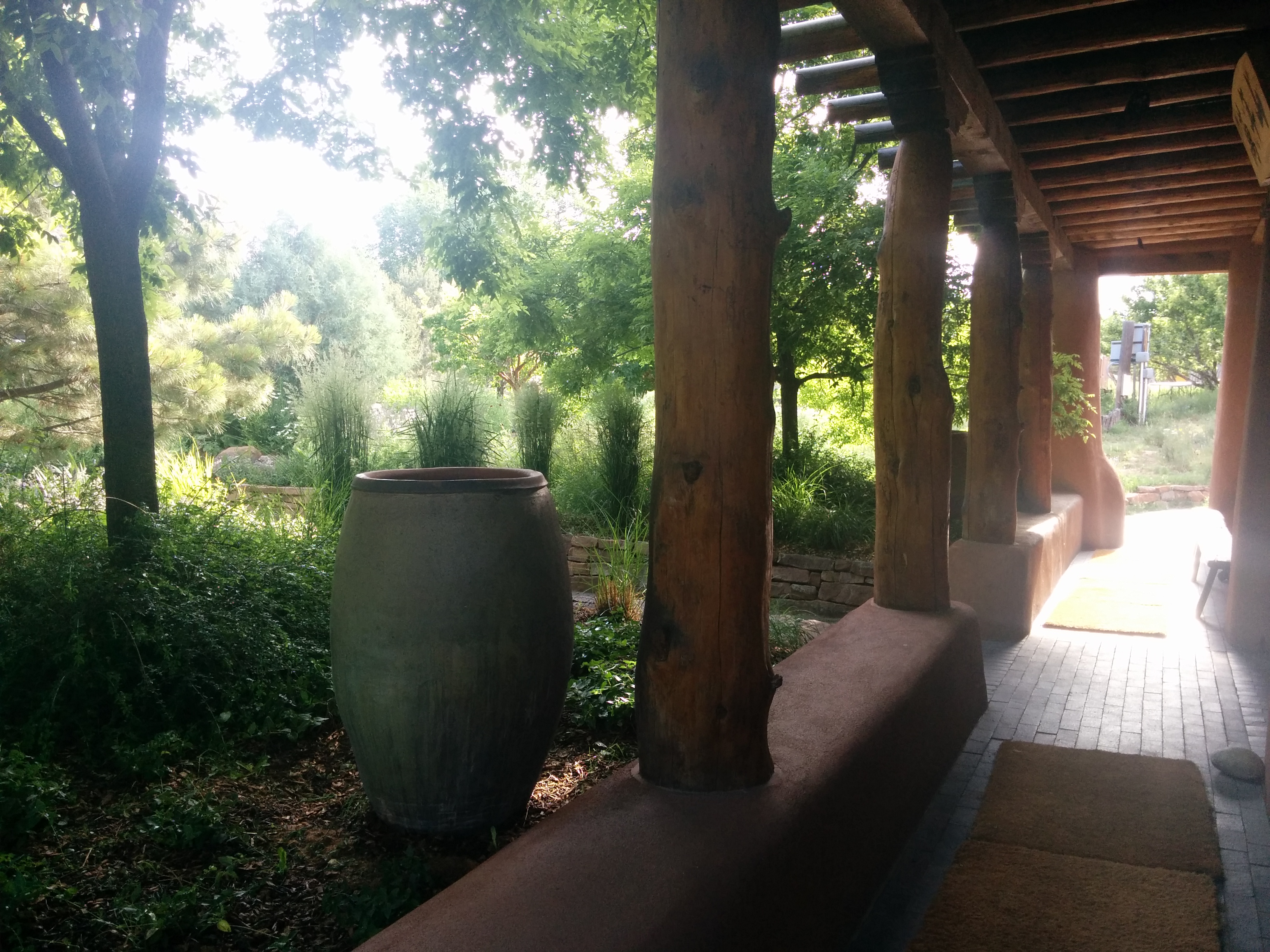The Gifts of Noble Silence. Notes From a Zen Retreat

Few weeks ago I drove with my friend, Madison, to New Mexico to a Buddhist Center, to spend there few days. In this post I wanted to share briefly what I experienced, and what are the perfect circumstances for transformation. In other words: what are the gifts of Noble Silence. (Though there was a good portion of talking too!)
Shaped around a schedule of monks, the day started with early one hour meditation, which was followed by breakfast, followed by work, a session, work, lunch, session, dinner, meditation and one more session.
What happens in a prolonged time dedicated to silence and mindfulness is not what most of us will find in a regular life. Time for ourselves, expectations, and environment have a huge impact on our psyche.
As I’m writing this, someone who just followed me on twitter wrote: “people today are so busy, that they don’t even have time for a breakdown they deserve.” Haha! What a perfect timing!
The Gifts of Silence
Before the retreat, enjoying the beautiful, art filled part of town, we almost didn’t feel like going. So happy I didn’t listen to that voice! That evening, sitting on a cushion, in the most beautiful Zen temple, I realized:
1. Full presence is the only way
Full presence is the only worthwhile way of doing anything.
2. Sharpened senses
The zendo was shaped as a rectangle and in the middle in the ceiling a big skylight opened to the sky. I heard few birds and the trees swaying in the wind. Could the tragedy of life be remedied by witnessing beauty in nature?
Contrasts seemed even sharper: that zendo, this place where every small plant is cared for and no drop of water is wasted, and the mindless use of resources, power, words, noise, human potential – in other places.
3. Sharpened attention
The activities that took place were slower and more contemplative than in other workshops. I wanted to rush. Do more. Fit in more. Be efficient. Not a chance.
Slowing down allows to break some limiting beliefs:
We speak. We hear ourselves speaking. Others practice deep listening, and we listen to ourselves. Suddenly – we notice: “What a nonsense! Why do I even say this? It sounds like such a limiting belief!”
Absurd, paradox, nonsense – become obvious.
4. Judgement is unnecessary
On the first night when we finished around 9pm, we were encouraged to practice noble silence until the next morning. We drove to our hotel room in silence, later exchanging only necessary words. On the way I noticed a shift: normally I’d want to talk. Form opinions. Did you like it? What do you think? What do I think. What would I change. What would I improve.
Judging, evaluating seemed useless. Since we were not talking, I didn’t feel like engaging in the cumbersome thought process! It was so refreshing. It was what it was. That’s it. It served us. Goodnight.
5. Softening
There is no need for defense. Everybody is dealing with something. And we can practice defenselessness as A course in Miracles teaches.
6. Acceptance
Why are we afraid to go within?
We fail, but we create a new philosophy of why we do what we do now. Why we are not on top of the world. “ehmm… I kind of changed the direction…ya know… there other thing looked better, so I’m doing this now” or “oh you know… he wasn’t my type anyway, I deserve someone better!” Isn’t it obvious ? Isn’t it funny? We protect our ego lying to ourselves and others!
In silence and solitude the moment comes, when we are at a brink of falling. Apart. It may look this way:
Ok so… yes… I guess the truth is: I failed. I was aiming there, but landed here. I failed and… it is what it is, what can I do? It’s ok. Now. I can accept myself…
I failed… and so did every person that ever lived. I failed greatly… and in that failing I saw who I am. Actually.. I feel free now that I think about it, I wanted to find my happiness in a wrong place. I feel free I don’t need to prove that I can do it… and this acceptance feels really good.
Acceptance.
7. Falling apart
In a regular life which is busy, and involving other people, there is no time to fall apart. And to put ourselves back together, on time. We need to schedule it. I’m not talking about nervous breakdowns. Those are a result of NOT taking time to fall apart.
Why it is important to fall apart?
So the structure that’s not working can break down, so a new structure can come together. Stronger.
Watching the other women walking the labyrinth in the garden – a contemplative practice – I had time to fall apart. I had no idea what I’m facing inside. I knew it was very much about me. Nobody was watching. I probably looked miserable and I didn’t care.
8. Making time to cry
Several women revealed they schedule these things.
In busy family lives with children, work, there is no room to process feelings.
Grief, sadness… many of us may have relatively good lives… but in the complexity of the inner life, there are sad places we need to look at.
“Every day I take my kids to school and then… I lie at the pond.. and cry.”
“I figured, I have 10 minutes every day to cry. My daughter goes to school and as soon as she is gone I do this…”
“I came here to finish grieving. Over the past few years I buried several of my closest relatives… I still need to feel and finish this… “
How – in the “real” life – can we have time for this?
9. State of flux
We are trying to define ourselves, find out who we are. “Will the search ever end?” – I wondered after I heard:
“I thought when I’m older I will know who I am. And here I am… 70 years old… again in transition”
10. Together
Everyone could do the work on their own.
It was more powerful together.
The environment was all about respect. Respect the soil you step on, respect the food and the beings that grew it, respect the silence.
People are healed with kindness and respect. That’s how it’s done.